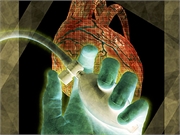Medication doses do not need to be reduced in response to symptomless orthostatic hypotension, authors say
THURSDAY, Feb. 13, 2020 (HealthDay News) — Orthostatic hypotension (OH) during hypertension treatment is not associated with a higher risk for cardiovascular disease events, according to a study published online Jan. 27 in Hypertension.
Stephen P. Juraschek, M.D., from the Beth Israel Deaconess Medical Center in Boston, and colleagues examined the association between OH and cardiovascular disease or adverse study events by randomized blood pressure (BP) goal (<120 or <140 mm Hg).
During a median three-year follow-up, the researchers found 1,170 (5.7 percent) instances of OH among those assigned a standard BP goal and 1,057 (5 percent) among those assigned the intensive BP goal. There was no association seen between OH and a higher risk for cardiovascular disease events (primary outcome: hazard ratio [HR], 1.06; 95 percent confidence interval [CI], 0.78 to 1.44). Additionally, OH was not associated with syncope, electrolyte abnormalities, injurious falls, or acute renal failure. There were associations noted between OH and hypotension-related hospitalizations or emergency department visits (HR, 1.77; 95 percent CI, 1.11 to 2.82) and bradycardia (HR, 1.94; 95 percent CI, 1.19 to 3.15), but these associations did not differ by BP treatment goal.
“Symptomless OH during hypertension treatment should not be viewed as a reason to down-titrate therapy even in the setting of a lower BP goal,” the authors write.
Copyright © 2020 HealthDay. All rights reserved.








